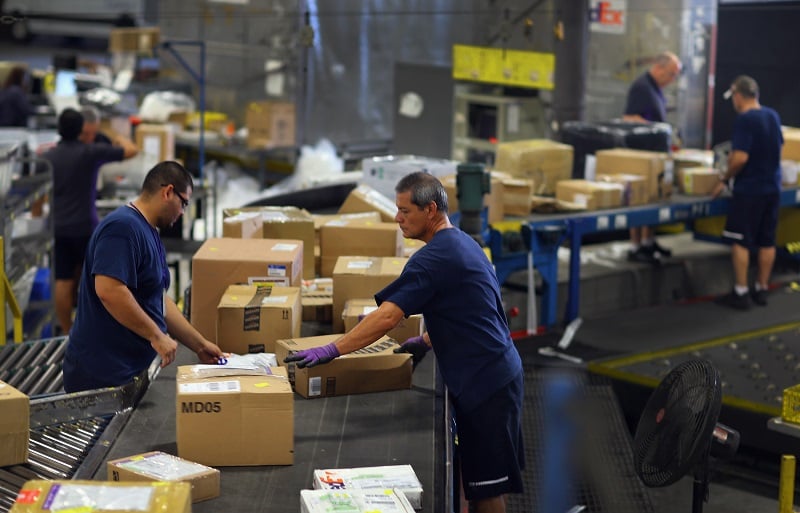
Joe Raedle/Getty Images)
Depending on how you look at it, you could really choose to feel good or bad about things; it’s all about perspective.
But one piece of good news from recent jobs reports is that some older workers, who had been having a lot of trouble finding their way back into the workforce following the great recession, are finally finding jobs. While that’s good news on the surface, there is an ugly underside to it that can’t be discounted.
A post from Zero Hedge was the first to point this out – and it was subsequently covered by others like the Huffington Post – but there seems to be an interesting current in the labor market: older workers are finding jobs, and younger workers are losing them. You can click over and check out the charts Zero Hedge has supplied to see the evidence for yourself, but it seems rather clear the labor force participation rate for younger workers has been on the decline while the opposite has been true for older demographics.
The real question here is this: why? After all, it seems that we should be seeing older workers drop out of the labor force in higher numbers, due to retirement or simple structural or frictional forces, while younger workers replace them. The reason is surprisingly simple, and a little disheartening.
The short and sweet of it is this: older workers don’t have any leverage. That means they will work for less, and won’t ask for a raise.
Compare that to the fresh-faced millennials pouring out of the country’s numerous colleges and universities, many with hefty levels of student loan debt, and all hungry to start climbing the corporate ladder. The key here is that the jobs older Americans are taking aren’t good jobs – these aren’t the reliable, middle class-sustaining jobs that propelled many to relative prosperity in generations past. These are low-wage, low-skilled positions, by and large, and they may be jobs that people were unwilling to take until recently.
At least, that’s how some people are interpreting what we’re seeing.
Soaking all of this up, what’s one to make of it all? Well, it depends. You could see it as a bit of good news that older workers are at least finding jobs, albeit jobs that aren’t the type they need to prosper. Or, you can take it as really disheartening that the only reason a lot of these workers are getting hired, per this particular analysis, is because employers know they will stay in line, and not come asking for more money or a promotion. That sucks, but it seems that employers are aware they hold that advantage.
This is just another interesting nugget being mined from recent economic data, which also shows how the middle class is being torn in two. Recent data from Pew Research shows that while the middle class is indeed shrinking, making up a smaller portion of the American population for the first time in a very long time, people are finding their way into the upper echelons of society at a higher rate than they are falling behind. Either way, it’s clear the country is still rife with economic issues and uncertainty, though we’re still miles ahead of where we were only a few years ago.
The next big question is what will happen over the next decade or so, if we see this type of thing continue. Boomers are set to start retiring en masse, but the problem is that a lot of them can’t afford to do so. That can have some serious consequences for everyone else still in the labor force – as those would-be retirees need work, and will be willing to take it at lower wages.
Culled from wallstreetcheatsheet
No comments:
Post a Comment